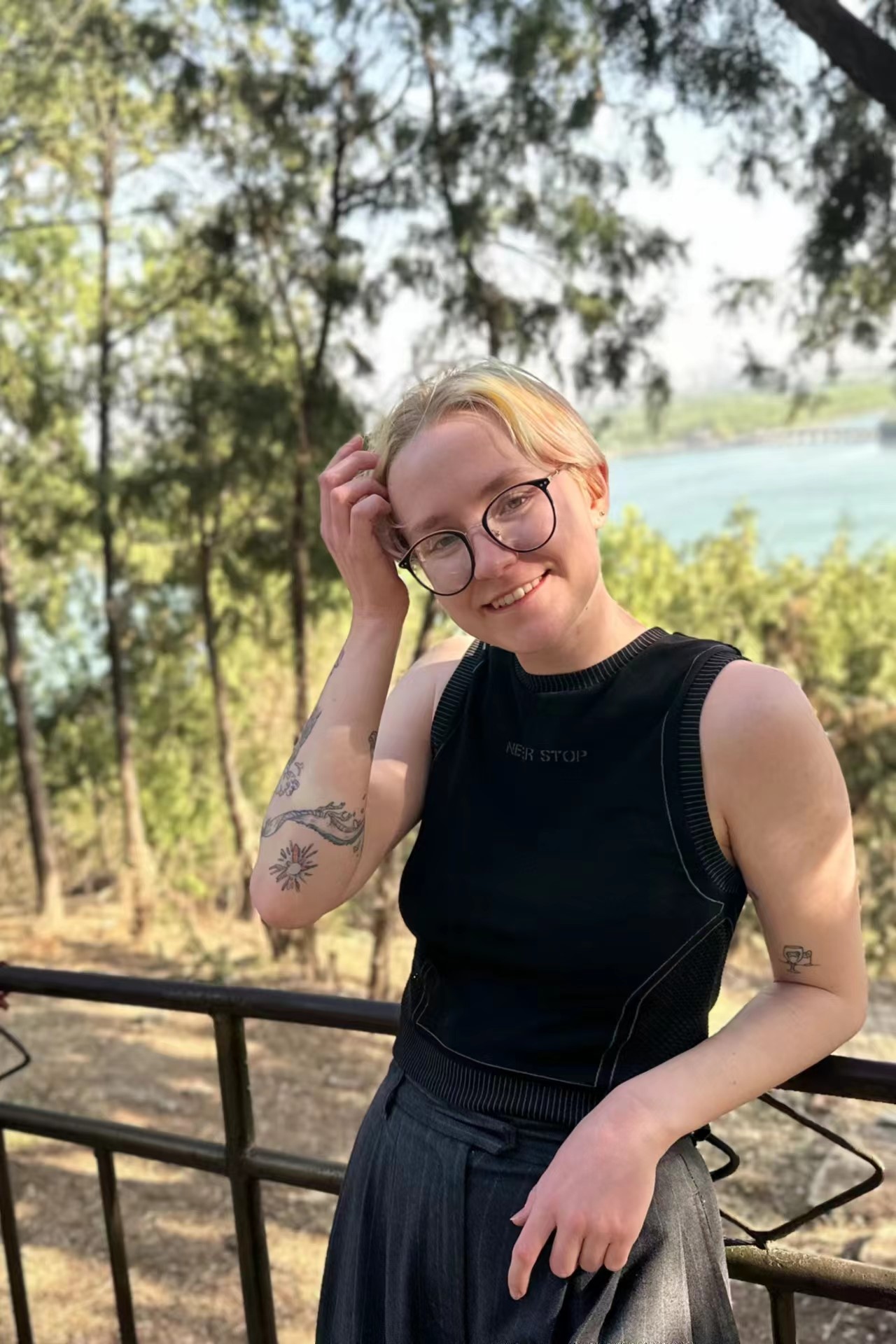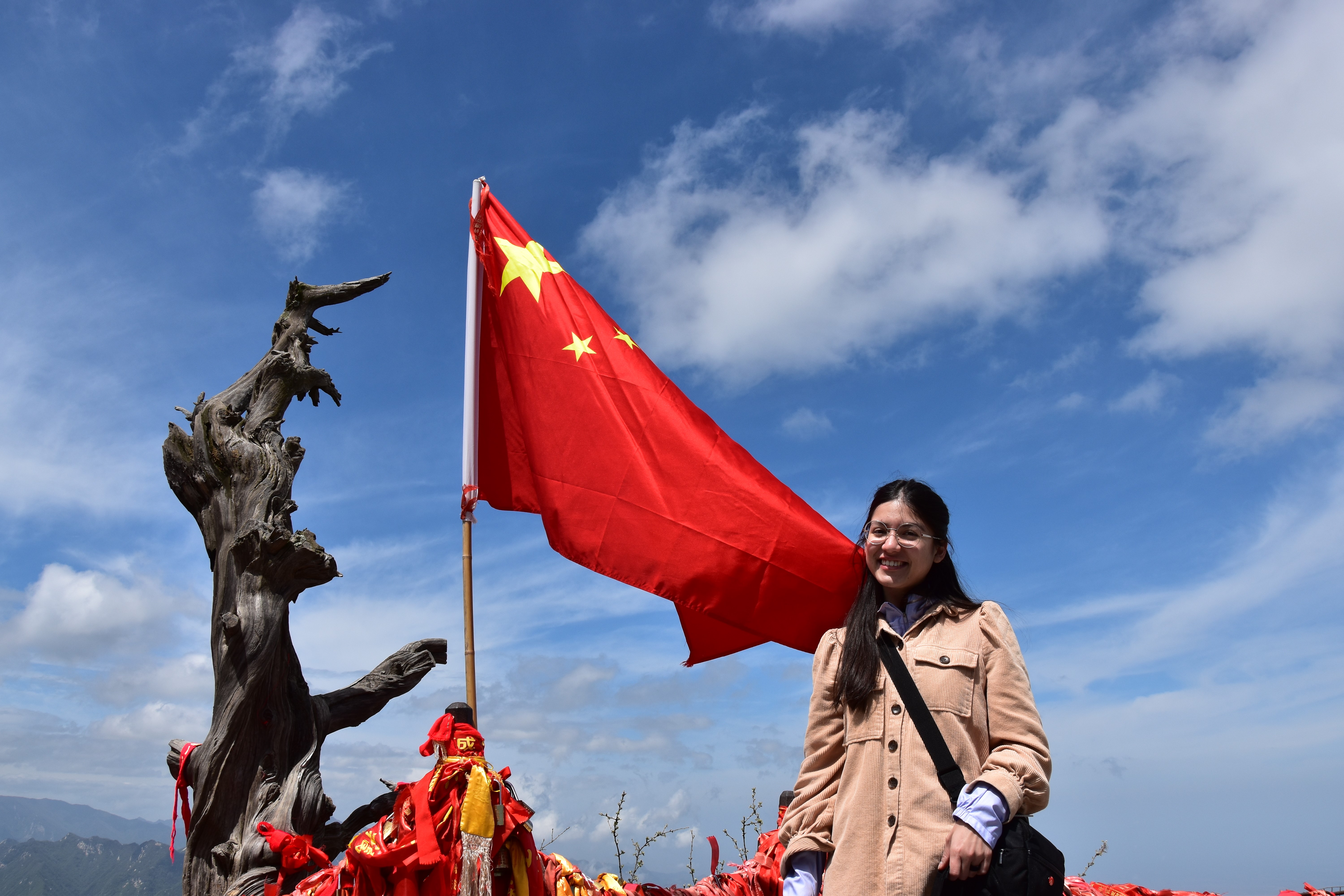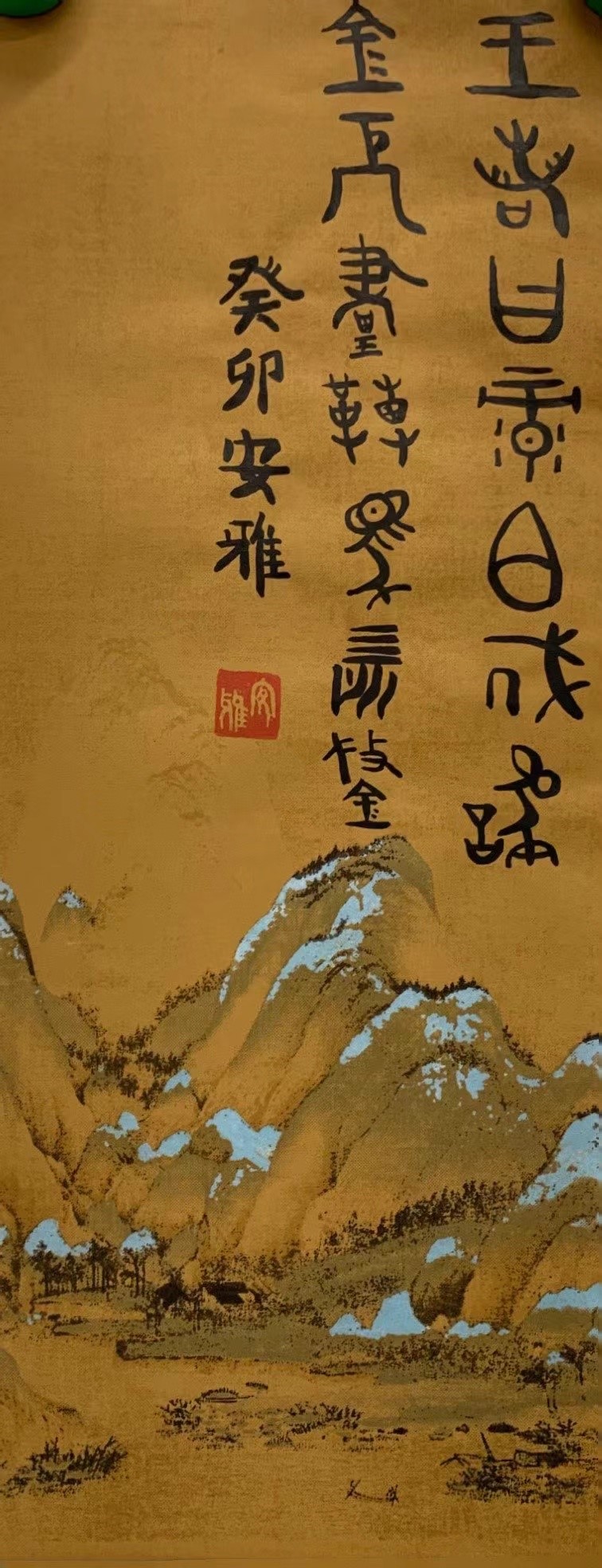Peking University, June 1, 2023: Every year, a group of students from Aarhus University in Denmark and the University of Würzburg in Germany enroll in the China Studies Exchange Program at Peking University (PKU). As part of the European Chinese Language and Culture (ECLC) Program, it aims to enable students to seamlessly integrate a full semester of studies in China into their home curriculum.
How do these Danish and German students start on this path of learning Chinese? How has their experience at PKU been? In the following Q&A sessions conducted by student journalists with PKU News, let’s hear from Elisa and Anja from Germany! The Q&A has been edited for clarity and length.

Elisa 姜伊兰

Anja 苏安雅
Q: Tell us about yourselves!
Elisa: Hi, my name is Elisa Jung and my Chinese name is 姜伊兰. I’m 23 years old and currently an undergraduate student from Germany. I have two younger sisters who are both studying in different cities in Germany and whenever we get the chance, we meet up to spend some time together! Our home has three cats that are currently growing up together and since I’m in China, I miss them a lot.
Anja: Hi, my name is Anja and my Chinese name is 苏安雅. I am 22 years old and I study “Modern Chinese” at Würzburg University. I like learning languages: I speak German, English, Thai, and Chinese, and I’m currently learning Korean. Since I am half Thai and half German, I usually spend my holidays in Thailand and therefore feel very connected to Asia. I love cooking, especially making Thai dishes. During my spare time, I like to read, listen to music and hang out with my friends. Friendship means a lot to me, so I am very happy that I have already found new friends in China.
Q: Can you teach us some common German phrases?
Elisa: “
Hä”: This simple word you use for questioning is a German favorite, though it is not very polite. As soon as you don’t understand something, you can simply use “Hä”. Instead of saying “Oh, I didn’t understand this, can you please repeat yourself”, you simply say “Hä?” Sometimes it can also be used when you don’t understand something you’re studying.
“
Dies, das, Ananas”: This phrase literally translates into “This, that, pineapple.” (The pineapple is only there because it rhymes in German). It means “whatever.” You wouldn’t use it in a sentence, but more as an ending statement. For example, if people are arguing about the best way to do something that happened in the past which you can’t change anymore, you can end the argument by saying “Dies, das, Ananas.” It is also a phrase one would use with friends and family members.
Anja: “
Servus”: This word is used in Bavaria (south of Germany) to greet someone.
“
Verschlimmbessern”: If you want to correct something but actually make it even worse, you use this word.
“
Helikoptereltern”: It translates into helicopter parents, meaning parents that care too much about their children.
Q: How did you start learning Chinese and what was learning Chinese like at your university?
Elisa: I actually started learning Chinese in 2018 as preparation for my time as an Au Pair in Dongguan. Honestly, learning Chinese back in my university in Germany was a little hard in the beginning due to COVID-19, as it was really hard for me to take online Chinese lessons according to Chinese standard time. While it was fun to meet different people and find out their reason for studying Chinese, it was still a slow process. Most of my friends happened to be speaking English or German, so I didn’t get a chance to practice the little Chinese I knew. I think I began digging deep into the language when our teachers started to mainly use Chinese to communicate with us.
Plus, the Sinology Department at my university is quite small, so it often feels more like a family than a university. (Luckily), there was always a professor willing to listen and help, and even fellow classmates were willing to support you and study with you in such a studious environment! It helped me a lot!
Anja: I started to learn Chinese in the summer of 2020 when I took part in a Chinese beginner’s intensive language course where I found out that I really liked the language. So, I looked for universities offering Chinese Studies (courses) or majors related, which was the reason why I chose Würzburg University. At the university, our teacher was very strict but very good at teaching Chinese. He not only taught us the foundation of Chinese but also made us fall in love with the language, though sometimes learning Chinese idioms and poems or stories could be difficult.
But it was still quite difficult to get in touch with Chinese exchange students since there were only a few of them studying in Würzburg. The lack of a natural linguistic environment made me recognize how important it was to come to China to learn Chinese. Even if there were excellent teachers in Germany, they were unable to teach us the “feeling” of being among Chinese people. I believe that only when living here, can we fully experience Chinese life and properly learn the language.
Q: How has your time at PKU been? What are your biggest takeaways from your time in China thus far?
Elisa: So far it has been great! I feel like I am learning a lot not only because of our great teachers but also because of the friends I’ve made here. I also really like the campus; it’s very beautiful! I really enjoy walking around the Weiming Lake during my spare time. Apart from our program’s courses, I was also able to audit one or two regular PKU courses, which was very interesting but also made me realize just how much I still had to learn. I also managed to join the PKU Rowing Club as I rowed competitively for 4 years in my youth. I got to meet many nice people through the club and we also went to a competition in Xi’an together! If I had the chance to stay longer at PIKU, I would definitely want to partake in more competitions with my new friends.
During my time here, I had many opportunities to learn about Chinese culture and Chinese people. While I understand that I will never understand Chinese culture like my Chinese counterparts would, I still feel like I am gaining a more in-depth understanding now. I also think it is important to not get stuck in a “bubble” and realize that it is important to talk to many different people and listen to their thoughts and opinions.
Anja: Despite the first few weeks being stressful, I was able to join the Peking University rowing team and participated in the Nanjing competition held in May. I even represented PKU for an interview during an evening ceremony, which made me very proud. By now, I have found really nice friends here and will really miss the whole atmosphere of being part of the rowing club when I get back to Germany. One point I want to mention (which I will be missing) is the food. Compared to Germany, PKU offers a variety of dishes that I really enjoy eating! I especially love the Claypot Station on the 3rd floor of Jiayuan Canteen. I also really like the campus, especially the area around the Weiming Lake. As the weather is getting warmer, my friends and I often take a walk around the Lake and enjoy the weather.

Anja in an interview

Visiting Datong

Anja’s Caligraphy Piece
My biggest takeaway so far is making lots of friends in China. People in Beijing come from all around the world and usually are eager to share their stories with you, which makes me realize that China is a country with many different traditional customs, different types of food, dialects, and ways of living. Just randomly talking to people is the easiest way to improve your Chinese!
Beijing is also a convenient place to live. All you need is a phone and a WeChat or Alipay account. I also learned that Chinese people are not as direct as Germans when it comes to expressing their feelings or their way of talking, so it was important for me to understand the nuances of the Chinese language and analyze their body language. Beyond that, the most important thing I can think of is to always remember to ask questions when you don’t know what is going on. After all, asking questions means that you are interested in learning something new!
Q: Any things you’d like to tick off your to-do list in China before returning home?
Elisa: One of the most important things I want to do before going back to Germany is to visit Shenzhen to see my friends. While many of the people I used to know returned to their home countries, there are still a few who stay in Shenzhen. I actually got the chance to meet one friend in Shenzhen while in Xi’an and it was really amazing to see her again.
Another thing I would like to do is to meet up with my former host family. I get to spend time with one of my host kids regularly since he moved to Beijing. But because the other (kid) is still living in Dongguan, it might take a while to meet him again. I can imagine it would be amazing to see how much he’s grown since the last time I saw him 4 years ago.

Making dumplings!
I also would like to get better at making dumplings if I get the chance. Though, most importantly, I want to constantly improve my Chinese so that I can understand and talk more with my Chinese friends here in China and back home!
Anja: I would definitely like to go to the provinces in southwestern China like Yunnan and Sichuan. And of course, take a short trip to Shenzhen and Shanghai. Besides, I would also like to improve my Chinese and make lots of new friends. Eating as many local dishes as possible is also one of my goals! In the end, I believe that by embracing life in China, I will be able to fully understand the country and its people.
Epilogue:
From Europe to Beijing, their language learning journey has taken them across over 7,000 kilometers into the heart of the Chinese language. This journey may have started by chance or by plan, but most certainly with a shared affinity. Over the course of a semester, they have immersed themselves in a completely different linguistic and cultural environment. They take away with them a deeper appreciation of Chinese culture, a better understanding of Chinese society, and a renewed passion for learning more about the rich civilization. As they reach the end of their semester, we hope our new PKUers are able to make the most of their time and have a rewarding and fulfilled journey in China.
Read Also: Q&A | Foreign exchange students on learning Chinese at PKU - Part One
Written and interviewed by: Su Huangyi and Vincent Jeong
Edited by: Dennis Meng





